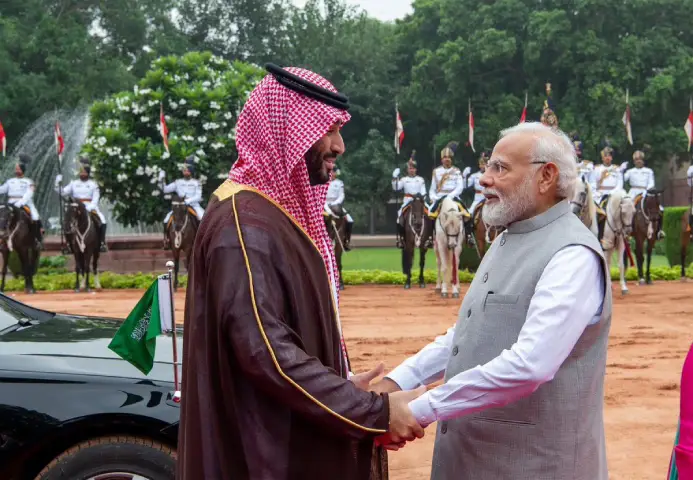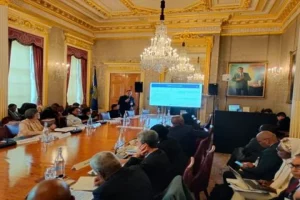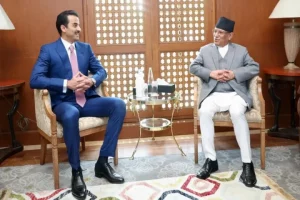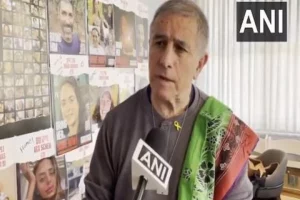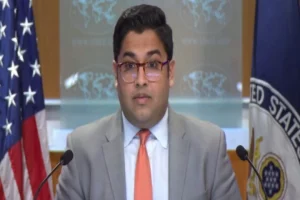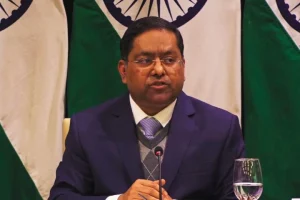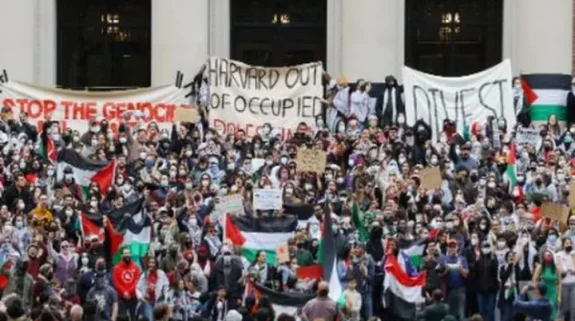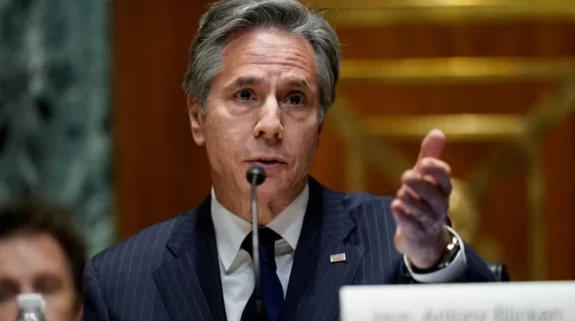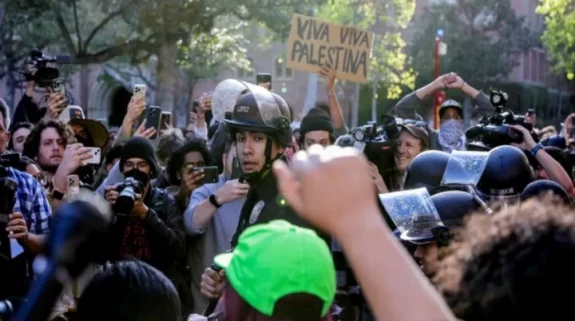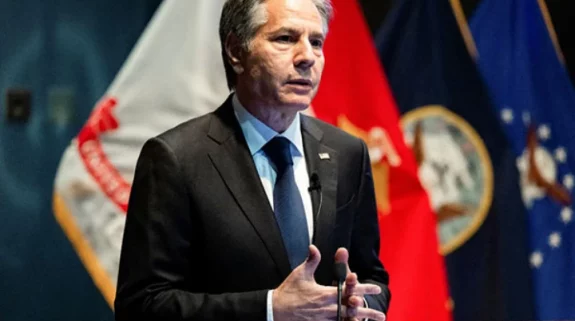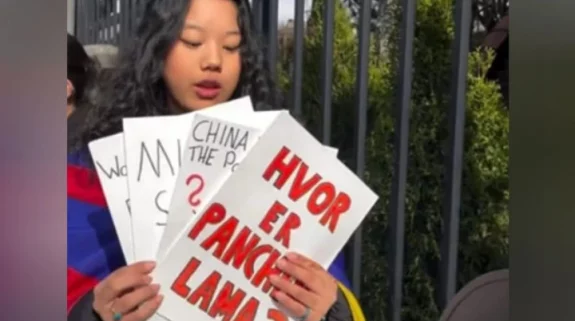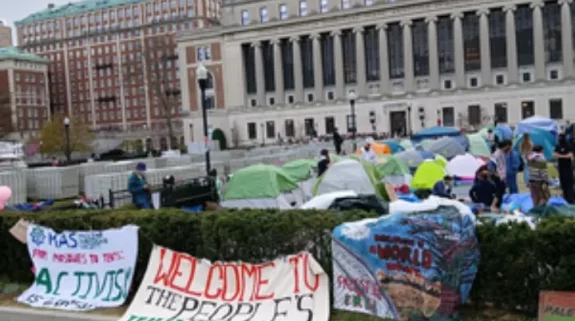As the Hamas-Israel war stirs raw emotions, powerfully impacting domestic politics, India’s sane voice of rationality, principle and balance stands out.
India’s stance on the frenzied situation in the Gaza strip rests on three key principles. First, the terror attack on Israeli civilians by Hamas operatives must be called out, unclouded by back stories, contexts, or Israel’s subsequent response to the strikes. Second civilians, irrespective of origin—Israelis or Palestinians must remain protected. Consequently, New Delhi has not only backed humanitarian aid to Palestinian civilians, but walked the talk by flying essential supplies bound for civilians in the killing fields of Gaza.
Third, India has emphatically reiterated its call for a two-state solution—Israel and Palestine being two independent states living side by side in peace and security with each other, as the foundation to permanently end the festering Arab-Israeli conflict.
India’s decision to unhesitatingly call out Hamas for perpetrating terror attacks in Israel, which killed more than 1500 people is a well-grounded decision.
A clear-eyed India sees Hamas as it is—a terror outfit that is rooted in the Muslim Brotherhood extremist ideology, backed by Qatar and others.
A bit of background is essential here. The Muslim Brotherhood originated in Egypt, with Hassan Al Banna and Syed Qutab being its pivotal ideologues. In the early 20 th century, Hassan al-Banna an Egyptian schoolteacher founded the Muslim Brotherhood—a highly influential Islamic revivalist movement whose footprint is visible over time across the region. Al Banna saw in Islam a comprehensive system with the Quran and Sunnah providing the feedstock for defining national constitutions. His ideology rejected western materialism, British imperialism but advocated pan-Arab unity fusing into the thought of a globalist Islam. However, Al Banna, who was killed by the Egyptian secret police in 1946, fiercely rejected Egyptian traditionalism and Arab Nationalism, pitting him against Arab socialists, inspired by the thought of secular modernisers such as Michel Aflaq, whose thought majorly impacted governance in Egypt, Syria, Iraq, and Libya as well as the Palestine Liberation Organisation (PLO).
Founding leader Michel Aflaq receives Iraqi children.
Aflaq’s ideas were instrumental in shaping the post-colonial politics of Syria, Iraq, and other Arab states, where Ba’ath Party held power or had significant influence for several decades. His vision for society emphasized… pic.twitter.com/5Xb5DHm40l
— Iraqi Ba’athist (@IraqiBaathist) March 5, 2023
Consequently, the Muslim Brotherhood came in the cross-hairs of Egyptian leader Gamal Abdel Nasser, whose fierce crackdown triggered the outflow of the group’s cadres from Egypt to the Arab Gulf countries including Saudi Arabia, Kuwait, and Qatar. Here these activists provided the intellectual calls which were accommodated in schools and universities as influential teachers and professors.
Hamas, an acronym for Harakat al-Muqawama al-Islamiya (“Islamic Resistance Movement”), seeded the Muslim Brotherhood ideas in Palestine through its founding ideologue Sheikh Ahmed Yassin.
A Palestinian cleric, Sheikh Yassin became acquainted with Muslim Brotherhood ideas during his stay in Cairo, where he studied theology. In the late 1960s, Yassin preached and performed charitable work in the West Bank and Gaza, both occupied by Israel following the 1967 Six-Day War.
Subsequently, Yassin established Hamas, the Brotherhood’s political arm in Gaza after the outbreak of the first intifada, a Palestinian uprising against Israeli occupation of the West Bank, Gaza, and East Jerusalem in 1987. A year later Hamas’ charter was released advocating Israel’s destruction and the establishment of an Islamic society in historic Palestine. Hamas’ extremism rejected PLO’s secular resistance, eventually leading to a bitter power struggle resulting in Arafat’s death and Hamas’ consolidation in Gaza.
Absorb the origins, rationale—the mission of #Hamas , the terrorist organisation that is committing atrocities against Israel, and was founded by Sheikh Ahmed Yassin in 1987: Written by Yassin’s son, who understands his father’s megalomania but rejected it. @RashidaTlaib has not. pic.twitter.com/ywyXTAlcLx
— S D Picker /🇺🇸~~ (@PicAxe6) October 22, 2023
Now fast forward to Hamas’ connections with Qatar, which had already soaked in the Muslim Brotherhood ideology.
Though Qatar officially disbanded the Muslim Brotherhood in 1999, it continued to provide the organization with financial, media and diplomatic support including through the Qatari-owned satellite network Al Jazeera, which has been accused of bias toward the Brotherhood, says a report in the Christian Science Monitor.
Qatar had also provided sanctuary to prominent Brotherhood leaders such as the group’s spiritual leader, Yusuf al-Qaradawi, who passed away last year. The Arab Spring, which hit Syria in 2011, where key leaders of the group were housed, triggered migration of Hamas leaders such as Khaled Mashal, to Doha.
But Qatar’s connections have preceded the arrival of Mashal and co. According to a Counter Extremism Project report titled “Muslim Brotherhood in Qatar” Doha, in 2008 had reportedly pledged $250 million to Hamas one year after the terror group violently seized control of the Gaza Strip. Four years later, then Qatari Emir Hamad bin Khalifa al-Thani became the first head of state to visit Gaza, where he pledged $400 million to Hamas. Thereafter, the Qatari government has continued to send money to Hamas. In July 2016, Qatar announced that it had paid $30 million to Hamas-hired workers in Gaza, thus becoming an essential part of sustaining an administration.
Qatar has hosted other internationally sanctioned Hamas officials as well. In June 2017, following pressure from several neighbouring Gulf States, Qatar finally evicted U.S.-sanctioned Saleh al-Arouri, a senior Hamas military leader and financier who has directed Hamas military operations from both Turkey and Qatar, says the report. Besides, after Ismail Haniyeh won Hamas’s May 2017 internal elections, the New York Times reported that Haniyeh would move to Qatar. However, Haaretz later reported that Haniyeh intended to travel between Gaza and Qatar, though his plans would be largely dependent on whether Egypt would allow him to transit to Gaza.
In April 2019, French journalists Christian Chesnot and Georges Malbrunot published The Qatar Papers – How the Emirate Finances Islam in France and Europe. The book details Qatar’s financial support to 140 mosques and Islamic centres throughout Europe, including several linked to the Brotherhood. According to the authors, the Geneva-based Museum Le Musée des civilisations de l’Islam, allegedly displays Muslim Brotherhood propaganda and received 1.4 million Swiss francs from Qatar. The authors further alleged finding multiple books by Qaradawi when they visited mosques and schools funded by Qatar around Europe.
Though a conclusive linkage cannot be drawn, the Qatari judicial authorities have sentenced eight ex-Indian navy officers to death, soon after India, unlike many emerging economies, refused to take a one-sided position on events that followed the carnage perpetrated by Hamas targeting civilians inside Israel on October 7.
In calling out Hamas, India potentially has several allies including Saudi Arabia, United Arab Emirates and Bahrain—three Gulf countries that have vigorously quashed Muslim Brotherhood led or inspired revolts during the so-called Arab Spring. Besides, Egypt’s President Abdel Fattah Al-Sisi has personally erased the Muslim Brotherhood rebellion in 2011.
Unsurprisingly, Prime Minister Narendra Modi has already spoken to the Egyptian President about farming common ground on the situation. A similar exercise maybe in order with the heads of UAE and Saudi Arabia to push the pro-Palestine minus-Hamas narrative with the objective of finding a two-state solution to the crisis.
Also Read: Capital Punishment to 8 Indian Navy personnel sours 50 years of India-Qatar Diplomatic ties






